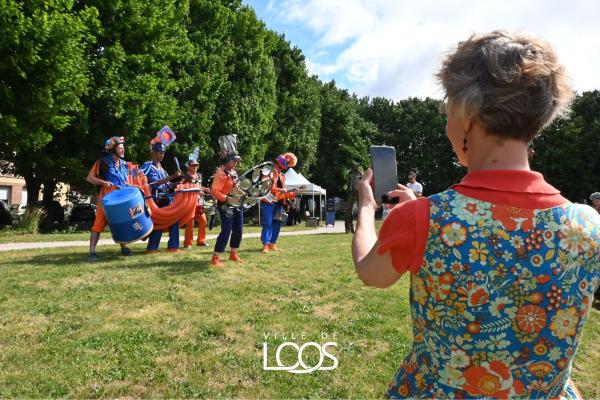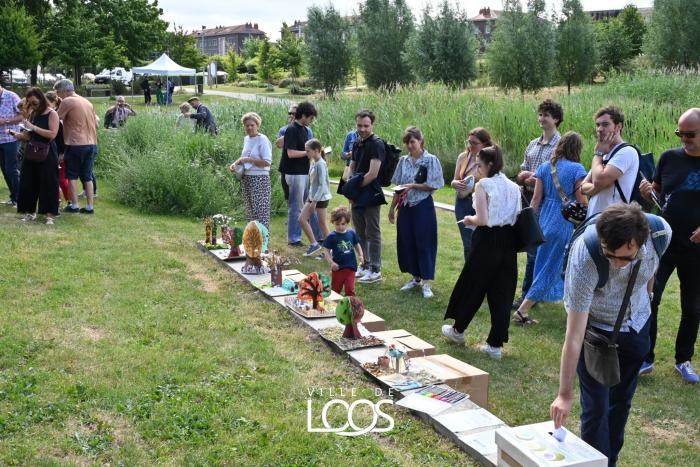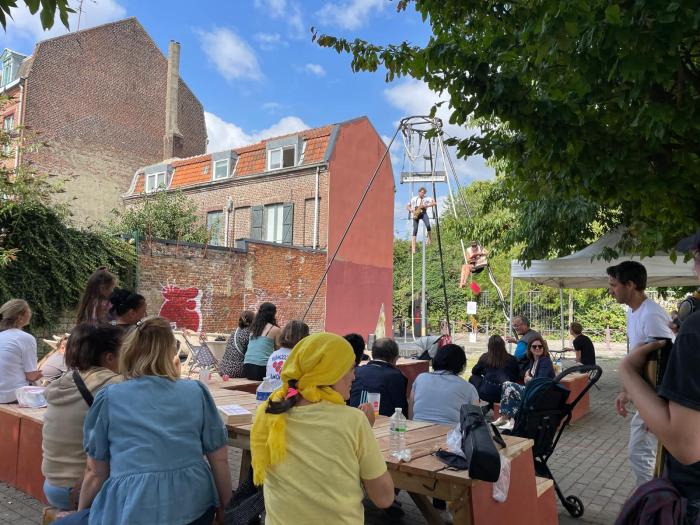
Summer 2025 is here, and so is Time2Adapt!
This event marks the start of the project’s first full implementation phase; part of a three-year European initiative aimed at exploring new and practical ways to improve access to cool spaces across the metropolitan area, helping residents better cope with rising summer temperatures.
After a first round of pilot actions tested in summer 2024, the two cities associated to the project are now scaling up their efforts. Together with local partners, they are experimenting with time-based policies and low-tech solutions such as extending the opening hours of public buildings offering cool spots, diversifying how and when these places are used, and setting up temporary structures (artistic or functional) to promote access to cool, comfortable spaces.
The event combined a festive atmosphere, complete with a brass band and stilt walker, with hands-on presentations of the project’s first experiments. Local officials, residents and partners were invited to explore the temporary summer installations, which included a sneak preview of Détroit, an art piece by Nicolas Tourte, as well as a temporary furniture created in a participative way by SEED, one of the project’s partners. A friendly and engaging way to raise awareness about the need to adapt to rising temperatures.

Time2Adapt launch event in Loos, June 2025
The celebration is spreading across the Time2Adapt sites!
Other festivities are ongoing on Time2Adapt sites to activate the sites invested by the experiments.

Les pieds dans l'herbe, event organised by Ville de Lille, July 2025
What’s next?
The Time2Adapt project will soon enter a new chapter, where other municipalities within Lille Métropole invited to join the initiative.
After nearly two years of hands-on experimentation in Lille and Loos, the partnership is preparing to scale up the new phase. This next phase aims to spread proven solutions, practical tools, and key insights to help and inspire local governments take action — and adapt effectively to the growing challenges posed by rising temperatures.